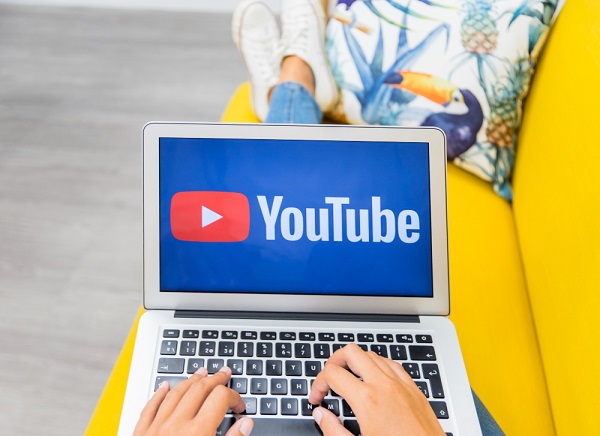Learning English as a second language has traditionally involved textbooks, audio materials, and classroom settings. However, advancements in technology have provided a new player on the field- social media. As a modern learning tool, social media offers unique advantages such as real-time engagement and exposure to various accents and dialects. This article will explore how you can use social media as a useful tool to learn English.
The Social Media Advantage
Social media channels are rich, reliable sources of both formal and informal English. They offer a dynamic learning environment where you have access to a wide range of English-speaking users from different parts of the world. Therefore, you're exposed to various accents, dialects, slang, and idioms, making your learning more contextual and practical. Most importantly, you get real-time feedback, which is a crucial aspect of language learning.
Using Facebook to Learn English

If your English language learning journey feels lonely, give Facebook a try. Facebook, among the world's largest social networks, can be your companion, your guide, and your learning platform. It boasts over 2.8 billion active users worldwide, which makes it effectively a global language hub with rich resources.
This digital platform provides various channels where you can explore and enhance your English learning experience, ranging from public and private groups to certain pages dedicated to learning English. Both of these resources on Facebook can actively contribute to your language learning endeavor. Let's delve a bit deeper into it to demystify how.
1. English Learning Groups: There are troves of both public and private Facebook groups exclusively dedicated to language learning, more specifically English. These are spaces where English learners like you, experts, enthusiastic native English speakers, and even professional instructors come together to share resources, discuss language queries, and interact in English. It can be compared to a virtual classroom where you can learn not just from an expert, but also peer learners.
What's fascinating is the diversity of the members in terms of their learning context. This means that you can learn different accents, slangs, idioms or phrases used in different parts of the world where English is spoken. Moreover, you have the freedom to pose a question or a doubt at any time and can expect to receive different interpretations or explanations. All these elements can enrich your learning and understanding of English exponentially.
2. English Learning Pages: Additionally, Facebook hosts a number of pages that are devoted to fostering English learning through regular content updates. Pages such as "BBC Learning English" and "British Council" can help you attain English language proficiency.
For example, 'BBC Learning English' posts a mix of English lessons covering grammar, vocabulary, and pronunciation along with quizzes to test your progress. Meanwhile, 'British Council' also offers a vast range of resources, including learning materials for English exams like IELTS.
Using Instagram for English Learning
![]()
Instagram has become a household name these days, with many of us scrolling through our feeds multiple times each day. However, apart from serving as a platform for sharing stunning images, picturesque travel photos and mouth-watering food shots, Instagram has also evolved into a fantastic arena for language learning, especially for those exploring the English language.
Instagram can be a potent resource to help you broaden your English learning quests. There are a wealth of accounts dedicated to helping learners of all levels improve their English language skills. These accounts ingeniously utilize Instagram's visual-centric approach to make English learning engaging, interactive and incredibly fun.
Some Instagram channels focus on various aspects of English language learning: vocabulary building, grammar lessons, and pronunciation tips, utilizing attractive visuals that help you retain and recall the language much more efficiently.
Let's take a look at an example: the account, @bbclelearning, uses fun and visually attractive infographics with a hint of humor to spark its audience's interest in English verb tenses. There's even a cute British mascot, BeeBee, to accompany you along your learning journey; it's all about putting the 'fun' back in learning fundamentals!
Similarly, another account, @EasyEnglish, uses relatable and amusing comic-strips to showcase common English phrases and idioms in day-to-day contexts. By connecting new words and grammar concepts to familiar situations, these accounts not only make English learning more relatable but also more memorable and enjoyable.
But how do you find such useful content? Instagram comes with an intuitive solution – hashtags. Instagram's hashtag system acts as a sort of directory to useful posts, connecting learners to helpful content on the platform. In terms of learning English, hashtags like #englishlearning and #vocaboftheday are particularly useful. By clicking or following these hashtags, you will have access to a continuous stream of posts, all dedicated to enhancing your English language skills.
X / Twitter: A Platform for Quick Lessons
![]()
X (formally known as Twitter) can be a fantastic platform for mini learning sessions that you can incorporate into your daily routine. X / Twitter is known for its 280-character limit per tweet, which encourages users to be clear, concise and engaging - all important skills in developing your English writing abilities.
Consider following English language learning pages on X / Twitter. These pages typically post tweets focused on vocabulary, grammar, and common phrases, often creating a sort of "lesson of the day" environment. With their guidance, you can learn new words, understand their usage in sentences, and discover common English phrases that you might hear in everyday conversations.
Popular English language newspapers and magazines are also valuable resources. By following reputable publications such as The New York Times or TIME Magazine, you basically expose yourself to a gold mine of high-quality English writing. Not only do you get to read up-to-date articles on various topics, but you also effortlessly expose yourself to diverse writing styles and vocabulary. It’s like a continuous English lesson that fuses with your recreational reading.
Moreover, X / Twitter provides a real-time platform where you can practice your English skills through interaction. Ever noticed those trending Twitter threads? They’re not just entertaining to read, they also offer an excellent chance to jump in and participate. When you spot a trending topic that interests you, don't hesitate to join the conversation. Reply, retweet, and get involved in the dialogue. This way, you use your already acquired skills and learn to adapt to different conversational contexts and idioms.
Just a quick note of caution though - X / Twitter, like any social media platform, is a mix of high-quality content and not-so-great content. Stick to legitimate pages for English learning and reputable newspapers and magazines. Above all, dive in, start conversations, have fun and keep learning. Twitter makes it easy for you to practice your English in real-world contexts, right from your own screen.
YouTube: A Multimedia Learning Resource

The beauty of YouTube lies in its direct, off-the-cuff and often entertaining approach to teaching English, making language learning less of a chore and more of an engaging activity.
This popular video-sharing platform brings to the table an expansive array of resources, distinctly crafted to cater to every facet of English learning. Whether it's mastering the rules of grammar or polishing your pronunciation skills, YouTube is inherently equipped to smoothen your English learning journey.
One of the standout features of YouTube is the abundance of channels solely dedicated to English Grammar. These channels, administered by proficient language experts, offer bite-sized tutorial videos peppered with explanations, examples, and exercises to help you grasp the nitty-gritty of English grammar. These videos simplify complex grammatical theories, making it easier for you to understand and apply them in your daily communication.
For those struggling with English pronunciation, YouTube offers a treasure trove of pronunciation guides and tips. You would be surprised at how much a simple five-minute video tutorial can do to improve your English accent. These guides take you step-by-step through the nuances of English sounds and intonations to ensure you gain more confidence in your speech.
Conversations form the core of any language, and especially in English, it is essential for learners to consistently improve their conversational skills. Recognizing this need, YouTube houses countless videos that run you through different conversational scenarios providing both formal and informal contexts. Watching native speakers engage in conversations allows learners to pick up phrases, common colloquialisms, and the natural rhythm of the language.
Learning on Reddit
![]()
This community-driven platform is actually an excellent resource for learners, particularly for those interested in improving their English language skills.
Imagine Reddit as a bustling digital city. Within it, there are hundreds of different neighborhoods, each boasting its unique culture and topics that they discuss. These neighborhoods are known as 'subreddits'. Two of these subreddits are particularly useful for English learners: r/English and r/EnglishLearning.
Think of these online spaces as interactive virtual classrooms or language exchange clubs, where you can engage with a more global perspective. You're not just limited to asking questions about confusing grammar rules or troubling vocabulary. You can also share learning materials, like a helpful YouTube video or an article that assisted you in your learning journey. Or perhaps, you're looking for a study partner? You can find one there as well. And the best part? These subreddits are always open, offering help or companionship whenever you need it.
A lesser-known advantage of Reddit is that it also offers a passive learning experience. It's like sitting in a cafe and overhearing a couple speaking English next door. Reading through different Reddit threads on various topics exposes you to a multitude of sentence structures and a wide-ranging vocabulary. For example, a thread in r/cooking allows you to learn food-related phrases and words, whereas one in r/technology could help you understand technical terminologies.
The vibrant conversations that happen on Reddit open an accessible gateway to natural, colloquial English. The language used here is unfiltered – presenting English as it is spoken in the real world. It provides the perfect opportunity to immerse yourself and get comfortable with English in a casual, low-pressure setting.
How Effective is the Social Media Approach?
Several studies argue that use of social media for language learning promotes self-confidence and motivation. For example, a review of empirical studies of social media on language learners’ willingness to communicate found that social media helped language learners improve their willingness to communicate using their second language. It did so by increasing self-confidence and motivation while decreasing anxiety.
Conclusion: Make the Most of Social Media
It's important to remember that, while social media is a useful tool for learning English, it should be used in combination with more traditional methods for well-rounded learning. However, the potential of social media for language learning is there. Whether you're a beginner or advanced learner, exploring English through social media can provide an engaging, enjoyable, and effective learning experience.










Do you have any feedback, comments, or suggestions about this article? Let us know in the comment section below the sponsored content.
Are you a teacher with ideas for improvement for this article? Want to contribute an article yourself? Leave a comment below or contact us.